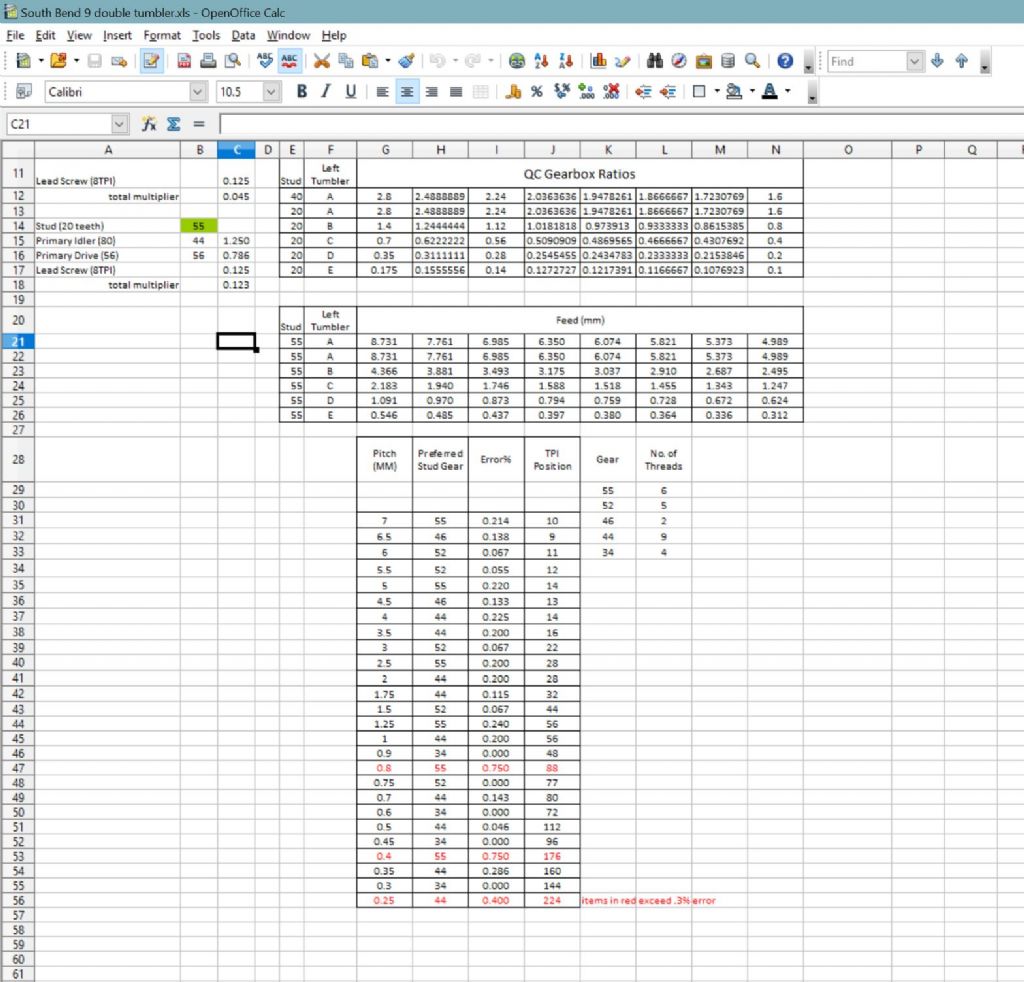Posted by JasonB on 27/10/2019 10:09:26:
Well I can get the 100/127 to work as 100/127 x 3.175 = 2.4999997 so near enough 2.5
but when it try 135/127 x 3 I get 3.1889763 not 3.175
Unless I'm doing it wrong.
We should keep firmly in our heads that we are discussing machines with a (Norton) gearbox. The ratios in the gearbox of a native imperial machine will be different to those in a native metric machine. The imperial Boxford above is a good example – it has, for example, a ratio with an 11 in it. You would not find a native metric machine with an 11 in its gearbox.
[Interestingly, it has a 23, half of which is 11 1/2, used for American pipe threads but not UK ones and does not have a 19 which we do use. Uncle Tony's site says it was a copy of the US South Bend and this is very apparent here].
The difference in gearbox ratios affects our choice of translation gear, so a gear to go from imperial to metric on an imperial machine will differ from that used going from metric to imperial on a metric machine.
If I might say so, there is no place whatsoever for decimals in any discussion of screwcutting. To avoid confusion, fractions are the only acceptable currency. One inch is defined as exactly 25.4mm, or 254/10 or 127/5.
Thus our 8tpi leadscrew has a pitch of 1/8" or 127/(5×8) = 127/40 mm. If we drive this with a 100/127 combination, the 127's cancel and we get 100/40 or exactly 2 1/2mm .
This is where use of decimals and a calculator lets us down. With fractions, you can see the numbers and you know that the 127's must cancel, so you know that one side of the multiplication sign has to have 127 as numerator and the other side of the multiply sign has to have 127 as denominator. If you have a 127 gear, the conversion will always be exact. If you come to a place where it seems approximate, you have taken a wrong turn somewhere.
Now onto our 3mm pitch leadscrew and our 135/127 gear. 1mm is 5/127 inches. 3mm is 15/127 inches. 15/127 x 127/135 gives 1/9 inches exactly. So our 3mm pitch leadscrew is behaving as if it is 9tpi. This number seems strange at first sight, but it probably combines better with the metric-native ratios in the gearbox to give the required imperial pitches.
Brian Wood.






